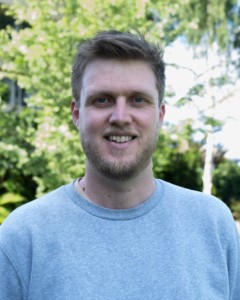
Russell Rayner
In this feature, we interview staff members who have been identified as Early Career Researchers. In the spotlight is Russell Rayner, an EIT | Te Pūkenga Sport and Exercise Science Lecturer.
What is your highest qualification, and where and when did you finish it?
I completed my PhD in Strength and Conditioning at Federation University Australia. I finished in early 2020.
Are you currently completing any other post graduate programmes?
No.
What is your role at EIT and what courses do you teach?
I’m a lecturer in Sport and Exercise Science. I primarily lecture in Strength and Conditioning and Biomechanics in the Sport and Exercise Science degree. In addition, I supervise research and teach in the Master of Health Science.
What areas do you specialise in?
I specialise in athlete physical preparation, specifically Strength and Conditioning and Biomechanics.
What research have you been involved in either last year or this year (please give details)?
I have been involved in a few research projects. Of note was a study with Ormond Heather and Pat Lander assessing the relationship between force-velocity profiles of Magpies rugby players and game day performance. I also have been involved with research profiling the physical capacities of Basketballers in Hawke’s Bay, and another project assessing the load management of junior athletes in Hawke’s Bay.
In two weeks, I am presenting research from my PhD in Auckland, and in 2023 I will begin data collection for a new study that assesses the effectiveness of isoinertial and isometric training on cycling performance.
How important is research to you as an academic?
Research is vital to me as an academic. As a researcher, I enjoy the research process as a method to better understand the world. In addition, research guides my day-to-day practice by informing the content I deliver.
How supportive is EIT in encouraging you to do research?
EIT has been very encouraging for me to do research. EIT has supported me through networking, research dissemination opportunities, and financial support. The support of the Research and Innovation Centre has been invaluable. It would be impossible to do research without the support of EIT.

